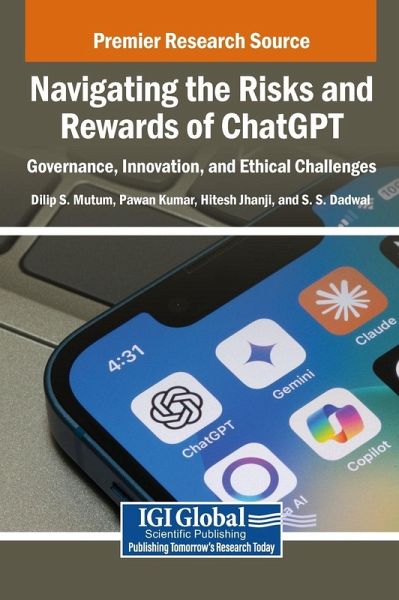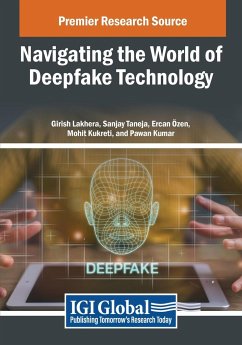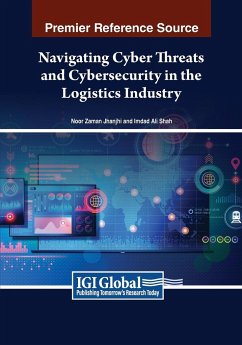
Navigating the Risks and Rewards of ChatGPT
Governance, Innovation, and Ethical Challenges
Herausgeber: Mutum, Dilip S.; Jhanji, Hitesh; Kumar, Pawan
Versandkostenfrei!
Versandfertig in 1-2 Wochen
209,99 €
inkl. MwSt.

PAYBACK Punkte
105 °P sammeln!
The rapid rise of ChatGPT and large language models reveals new aspects of human-computer interaction, transforming industries, education, and communication. With its ability to generate text, ChatGPT presents both significant opportunities and complex challenges. It fuels innovation, enhances productivity, increases access to information, and enables new forms of creative expression. It also raises concerns around misinformation, data privacy, bias, and the ethical boundaries of AI autonomy. As these systems become more embedded in society, navigating their impacts requires thoughtful governa...
The rapid rise of ChatGPT and large language models reveals new aspects of human-computer interaction, transforming industries, education, and communication. With its ability to generate text, ChatGPT presents both significant opportunities and complex challenges. It fuels innovation, enhances productivity, increases access to information, and enables new forms of creative expression. It also raises concerns around misinformation, data privacy, bias, and the ethical boundaries of AI autonomy. As these systems become more embedded in society, navigating their impacts requires thoughtful governance, ethical considerations, and a balanced approach that safeguards public trust while fostering responsible innovation. Navigating the Risks and Rewards of ChatGPT: Governance, Innovation, and Ethical Challenges investigates the balance between the benefits ChatGPT provides and the risks it presents. It examines the challenges associated with utilizing ChatGPT and presents solutions to make well-informed decisions by offering case studies and practical insights. This book covers topics such as ethics and law, influencer marketing, and educational technology, and is a useful resource for business owners, engineers, academicians, researchers, and data scientists.












